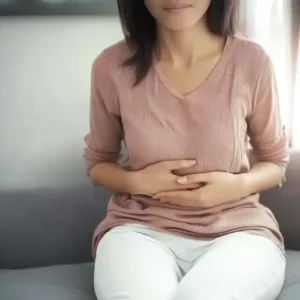When’s the Best Time to Take an Ovulation Test?
If you’re trying for a baby, ovulation tests can help pinpoint your most fertile days. But when’s the optimum time to take them – morning or night? This guide explains everything you need to know.
Why Use Ovulation Tests?
Ovulation tests detect luteinising hormone, which surges just before you ovulate. Catching this surge helps identify your few days of peak fertility each cycle. Used correctly, ovulation tests are 99% accurate at pinpointing your fertile window.
Should You Test in the Morning or Evening?
It’s not the time of day that matters, but the concentration of your urine. Luteinizing hormone is easier to detect in concentrated urine. This is why instructions advise not to drink too much liquid before testing.
Test when your urine will be most concentrated – usually first thing. But choose a fixed time and stick to it daily. Once the test line nears the control line, start testing twice daily so you don’t miss the surge.
How Often Should You Test?
You can test as much as you like. But if the test line is much lighter than the control, testing multiple times a day will just use up tests faster.
Save twice-daily testing for when the lines are nearly matched. Otherwise, choose your optimum time, such as morning, and stick with it.
What Affects the Results?
Certain medical conditions can affect ovulation. These include:
- Pregnancy, including chemical pregnancy
- Postpartum
- Menopause
- Breastfeeding
- Polycystic ovary syndrome (PCOS)
Those with diagnosed fertility problems should check if ovulation tests are suitable.
Some medications also influence luteinizing hormone and test results. These include hormonal treatments like birth control and fertility drugs. Ask your doctor for advice.
Finally, make sure to follow the instructions properly. For example, don’t leave it too long before checking the result.
When Are You Most Fertile?
Ovulation tests take the guesswork out of conception. But don’t put pressure on yourself to perform just as you get a positive result.
You still have around a 30% chance of conceiving two days before ovulation. Sperm can survive up to five days inside the body, so sex leading up to ovulation boosts your chances.
Key Points
- Use ovulation tests to pinpoint your fertile window each cycle.
- For accurate results, use concentrated urine and follow instructions carefully.
- Speak to your doctor if you have a medical condition that could affect ovulation.
- Don’t worry about hitting peak fertility exactly. Have regular sex in the days before ovulation.
Photo by Zoom Baby
Zoom Baby is a leading supplier of Pregnancy Tests and Ovulation Test Kits





